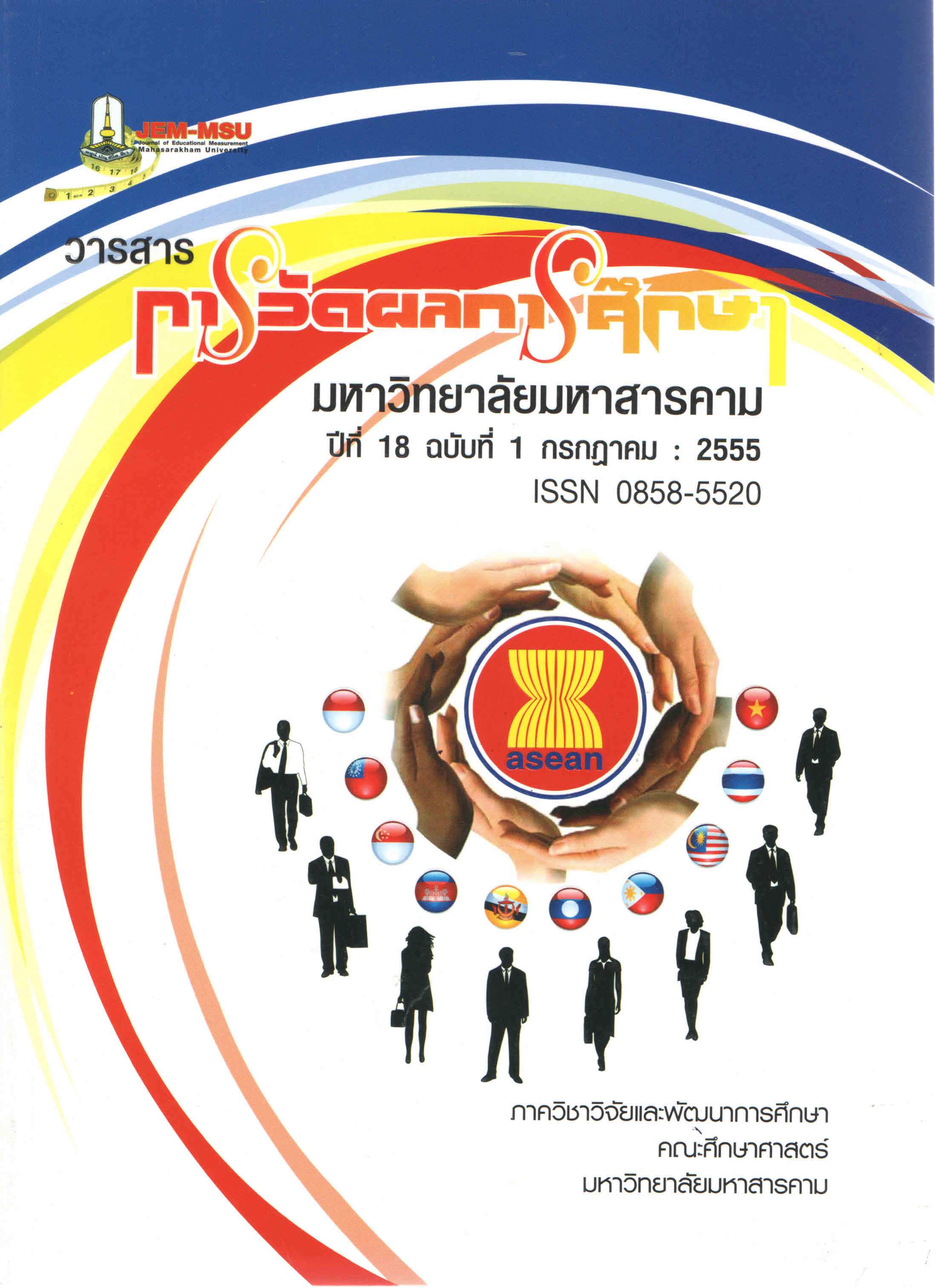A Causal Structural Relationship Model of Factors Influencing Depression of Mattayomsuksa 5 Students in Nakhon Ratchasima Province
Main Article Content
Abstract
This research aims to develop and validate a model of the causal relationship of
the factors that influence depression and to examine the influence of Self-esteem,
Adversity quotient, Family support and Stressful life events that contribute to depression.
The samples were 970 Grade 5 students of high school for the academic year 2011 of
multi-stage random sampling. The instruments used in research was Depression scale, Selfesteem scale, Adversity quotient scale, Family support questionnaire and Stressful life
events questionnaire. The reliability coefficient (Cronbach's alpha coefficient) for each
scale was 0.808, 0.838, 0.809, 0.875 and 0.790 and the discrimination value (Item total
correlation) for each scale was 0.224 to 0.658, 0.477 to 0.575, 0.132 to 0.657, 0.239 to
0.745 and 0.153 to 0.701 respectively. Data were analyzed by Path analysis using LISREL
(Linear Structure Relationship).
The results show that causal relationship model of factors influencing depression
that was developed was fit with the empirical data. Based on statistics : Chi - square (χ2) =
92.538, df = 86, p = 0.296, GFI = 0.988, AGFI = 0.981, CFI = 0.998 RMR = 0.113 and RMSEA
= 0.009. The variables which influence directly on Depression were Stressful life events
Self-esteem and Adversity quotient with Path coefficient in each 0.374, -0.182 and -
0.090 respectively. The variable that influence both directly and indirectly to Depression
was Family support with directly Path coefficient -0.236 , the indirect influence pass Selfesteem and Adversity quotient with Path coefficient 0.511 and 0.333 respectively. All
variables in model can explain for 36.6 % of the variances of Depression.
Article Details
The content and information contained in the published article in the Journal of Educational Measurement Mahasarakham University represent the opinions and responsibilities of the authors directly. The editorial board of the journal is not necessarily in agreement with or responsible for any of the content.
The articles, data, content, images, etc. that have been published in the Journal of Educational Measurement Mahasarakham University are copyrighted by the journal. If any individual or organization wishes to reproduce or perform any actions involving the entirety or any part of the content, they must obtain written permission from the Journal of Educational Measurement Mahasarakham University.


